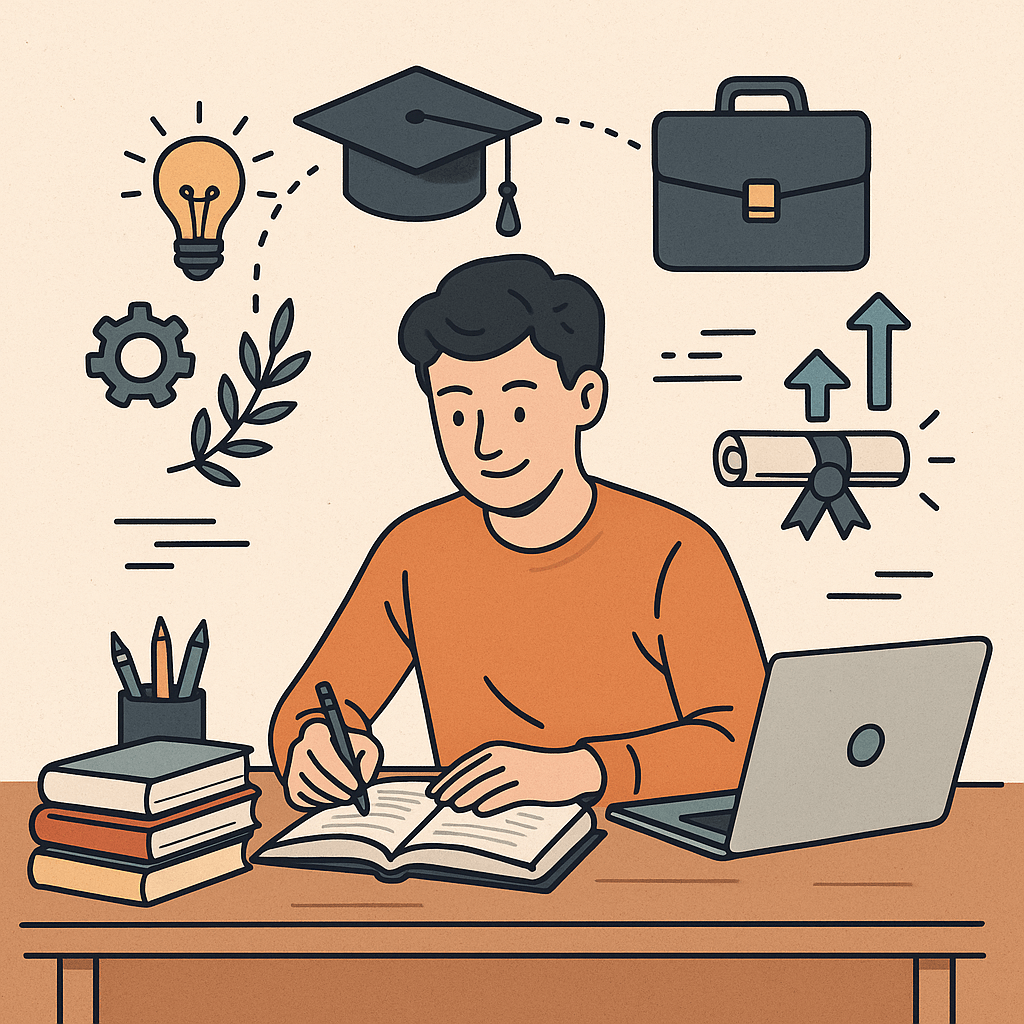Education and career are closely tied in today’s world. The decisions students make during their academic journey often shape the opportunities they pursue later in life. With increasing competition, rapidly changing job markets, and the pressure to succeed, students face significant decisions about what path to choose. This article discusses how education plays a critical role in career preparation and what students can do to navigate these early stages effectively.
The Early Years: Laying the Groundwork
From primary school through secondary education, students begin to understand their strengths and preferences. These formative years are less about choosing a job and more about gaining a wide set of skills communication, numeracy, problem-solving, and teamwork, that later influence professional success.
Teachers and parents play a key role during this phase. The encouragement to participate in a variety of subjects and extracurricular activities gives students more exposure, helping them identify interests naturally. Whether it’s science clubs, art workshops, or language competitions, these experiences often act as early indicators of potential career interests.
Key takeaway: The academic foundation built during school sets the tone for future learning habits and career direction.
Read:- animation courses and fees
Choosing the Right Academic Path
One of the most critical decisions comes during the final years of school: what to study next. Students are often expected to select subjects for further education or choose between streams like science, commerce, or arts. This is where guidance becomes crucial.
Many students struggle with this decision, often influenced by peer pressure, parental expectations, or job trends rather than their own interests and aptitudes. Career counselling and aptitude assessments at this stage can be valuable in helping students match their personal strengths with potential academic streams.
Additionally, students should be encouraged to speak with professionals in various fields, attend seminars, or engage in internships. Real-world exposure helps to clarify what academic route might lead to job roles that suit their personality and goals.
Key takeaway: Choosing subjects aligned with personal interests and strengths increases the chances of long-term career satisfaction.
The Role of Higher Education
Colleges and universities offer a more focused platform for skill-building. Whether a student pursues engineering, business, humanities, or vocational training, the environment is designed to sharpen discipline-specific knowledge and practical abilities.
Apart from academics, campus life provides networking opportunities, leadership roles, and social learning. Group projects, internships, and industry visits all contribute to better understanding the expectations of a working environment.
In recent years, industry-academia partnerships have also helped bridge the gap between what is taught and what the market demands. More institutions are inviting guest lecturers from various sectors, introducing real-world case studies, and encouraging collaborative projects with companies.
Key takeaway: Higher education is not just about gaining knowledge; it’s also about preparing to function effectively in a professional setting.
Read more:- CUET Result 2025
Vocational and Alternative Education Routes
Not every student needs a traditional university degree to succeed. In fact, vocational education has gained significant respect in many countries. Courses in hospitality, IT support, automotive services, or digital marketing are just a few examples where students can gain specific skills in a shorter time and step directly into employment.
Online certifications, boot camps, and distance learning have also opened doors for students from various backgrounds. For those who cannot afford a full-time degree or want to enter the workforce sooner, these alternatives offer practical value. Importantly, they also allow flexibility to study while working.
Key takeaway: Vocational and alternative education paths can lead to equally successful careers and should be considered based on one’s goals and resources.
The Importance of Soft Skills
Regardless of the career a student eventually enters, soft skills remain critical. These include communication, critical thinking, time management, and emotional intelligence. While technical education equips a student to perform specific tasks, soft skills determine how well one can lead, collaborate, and adapt.
Many employers say they value attitude and communication as much as if not more than, academic performance. As such, students should make it a point to participate in team activities, workshops, and personal development sessions.
Courses on public speaking, writing, and interpersonal skills are now commonly available online and through university workshops. These opportunities are worth taking seriously.
Key takeaway: Strong interpersonal and communication skills often set candidates apart in recruitment and career growth.
Read:- how to become an air hostess
Adapting to the Changing Job Landscape
Today’s job market is not what it was even five years ago. New technologies and industries are constantly emerging. Roles in artificial intelligence, cybersecurity, data analytics, and sustainability have grown significantly. On the other hand, some traditional jobs have become obsolete due to automation.
Students must remain open to learning beyond formal education. Lifelong learning is no longer a choice but a requirement. Upskilling and reskilling through short courses or certifications are common strategies for staying relevant.
Colleges are beginning to introduce multi-disciplinary programs to address this shift. For example, a student can now major in computer science while also studying design or business. This flexibility enables them to take on hybrid roles in organisations.
Key takeaway: Staying updated and adaptable is key to staying employable in a dynamic job market.
Career Planning and Mentorship
Career planning is not a one-time event. It evolves as students grow and their experiences change. While some students may find their passion early, others might need time and exploration. Both paths are valid.
Having a mentor can greatly ease this process. A mentor, whether a teacher, family member, or professional can help a student reflect, ask the right questions, and avoid common mistakes. Many schools and colleges now have dedicated career services to connect students with mentors.
Students should also make a habit of setting short-term and long-term goals. A five-year plan might include completing a degree, gaining experience through internships, building a professional portfolio, and acquiring relevant certifications.
Key takeaway: Career planning is a process of constant reflection, goal setting, and learning from mentors and experience.
Conclusion
Students today face a world full of possibilities but also many uncertainties. Making informed decisions around education and career requires patience, research, and self-awareness. With the right support, exposure, and mindset, students can align their education with meaningful and rewarding career paths.
Rather than rushing into choices or following trends blindly, students should be encouraged to learn about themselves, stay open to options, and remain curious about the world of work. The most successful careers often begin with a clear understanding of what truly matters to the individual.




Comments
0 comments